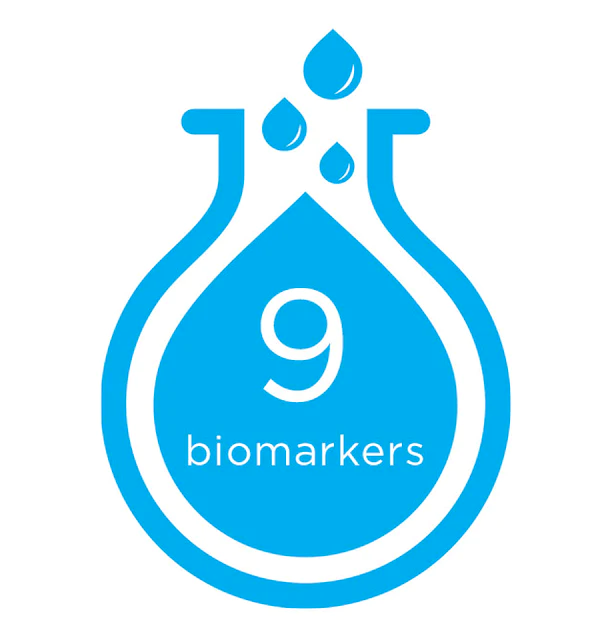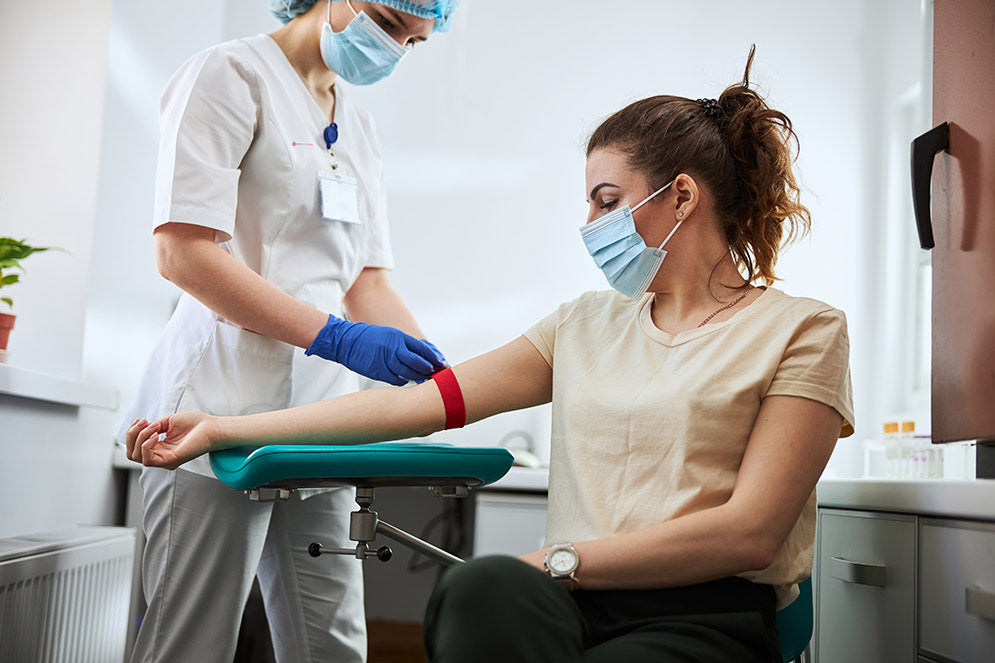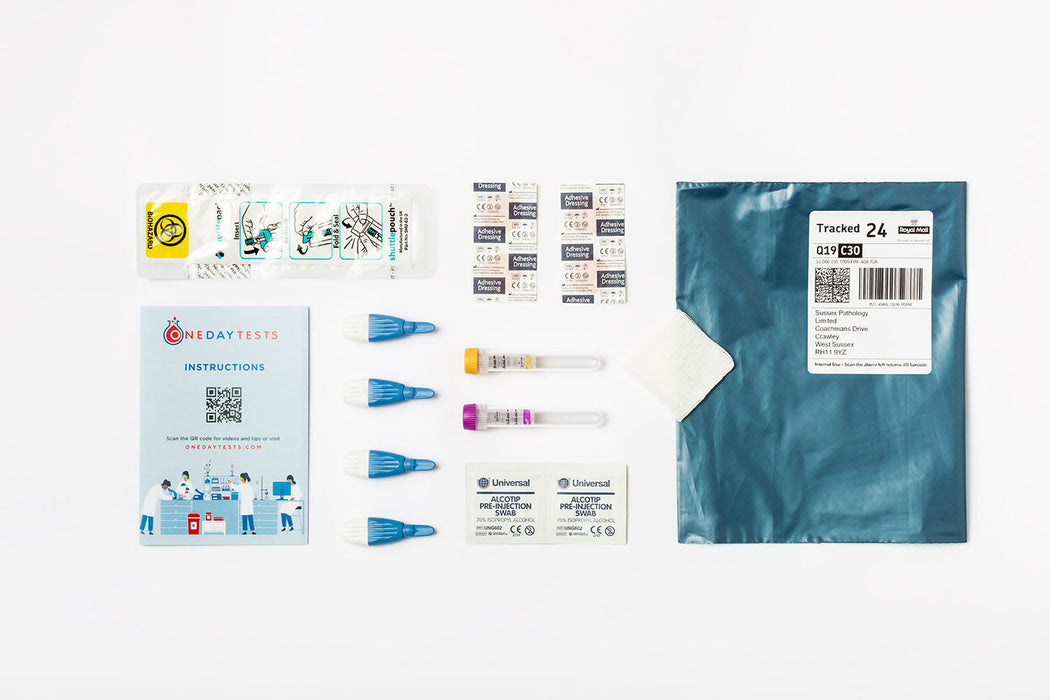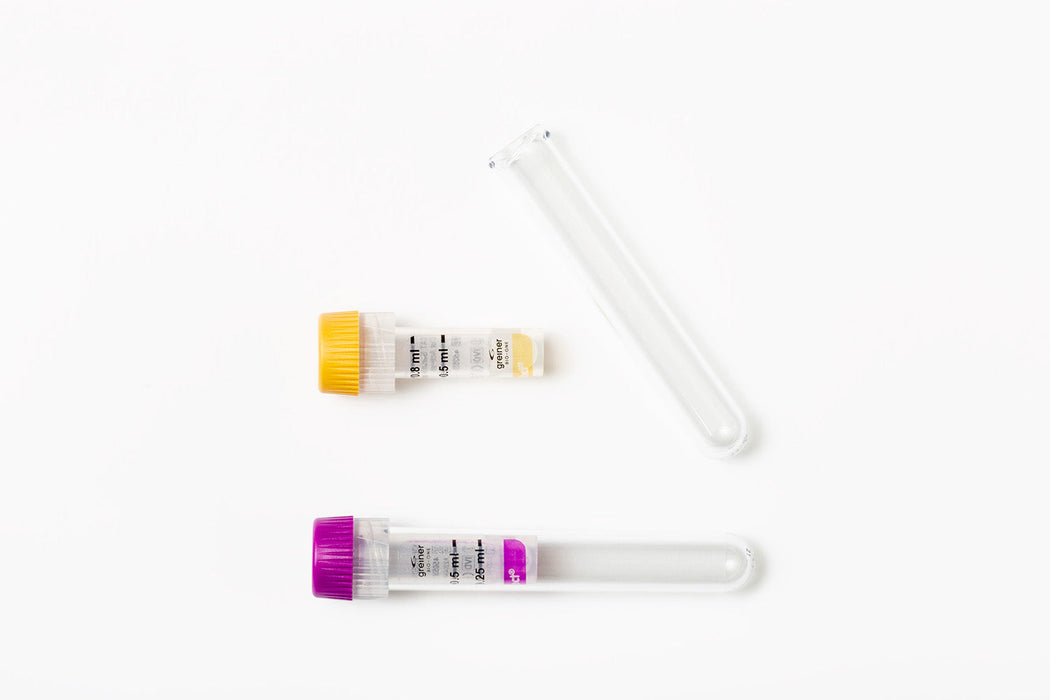What is the Female Hormone Blood Test?
The Female Hormone Blood Test takes a comprehensive look at your hormone levels including those involved in fertility and the menstrual cycle as well as the thyroid hormones that regulate your metabolism.
Hormonal systems are complex and the hormonal interactions that control the menstrual cycle and fertility are particularly elaborate and elegant. Any change or abnormality in the hormones involved in this cycle can have quite varied symptoms.
By looking at these hormone levels we can establish whether you may be entering perimenopause or menopause, whether there is any indication of polycystic ovarian syndrome (which may cause irregular periods as well as symptoms such as excess hair growth and acne), or whether you are responding well to hormone replacement therapy.
9 Biomarkers
-
THYROID FUNCTION
- Unbound thyroxine (Free T4)
- Unbound triiodothyronine (Free T3)
- Thyroid Stimulating Hormone (TSH)
-
REPRODUCTIVE FUNCTION
- Oestradiol/estrogen
- Luteinizing Hormone (LH)
- Follicle Stimulating Hormone (FSH)
- Sex Hormone Binding Globulin (SHBG)
- Testosterone
- Free Testosterone
- Prolactin
- Free Androgen Index (FAI) - Calculation
-
UPGRADE
Need more biomarkers? Check out our Ultimate Healthy Woman Blood Test.
Everything you need to know about the female hormones
The menstrual cycle in women is regulated by fluctuations in female hormone levels. The length of the cycle is measured from the first day of menstruation to the start of the next period. While the average menstrual cycle lasts 28 days, it can range anywhere from 21 to 40 days. By undergoing a blood test, it is possible to track the hormonal changes that occur throughout the menstrual cycle.
Changes in hormone levels throughout the cycle
The first day of the cycle marks the onset of menstruation, during which female hormone levels are low. As the cycle progresses, an egg begins to develop in one of the ovaries, leading to the gradual production of the hormone estrogen. Around days 10 to 16, estrogen levels reach their peak. This surge in estrogen, along with the hormones LH and FSH, prompts the release of the egg from the ovary. Following ovulation, the egg implants itself in the uterus, triggering the production of smaller amount of estrogen. Towards the end of the cycle (around day 28), if the egg remains unfertilized, hormone levels decrease, leading to the start of a new cycle with the onset of menstruation.
Health conditions and female hormones
Polycystic Ovary Syndrome (PCOS) is a condition that disrupts the normal development of eggs in the ovaries. Common symptoms of PCOS include excessive hair growth, weight gain, irregular or missed periods, and elevated levels of the male hormone testosterone. Thyroid problems, such as an overactive or underactive thyroid, can also impact egg development and hormone levels. Testing hormone levels can help identify whether health issues like PCOS or thyroid problems are responsible for hormonal changes in the body.
Hormonal changes during menopause
Menopause brings about significant hormonal changes, particularly decreased levels of estrogen and other hormones. On average, menopause occurs between the ages of 45 and 55 and is a natural transition that all women experience. However, it can have a profound impact on a woman's overall well-being.
Menopausal symptoms include hot flushes, mood changes, night sweats, fatigue, changes in the menstrual cycle, reduced sex drive, memory and concentration issues, as well as vaginal dryness and pain.
To alleviate these symptoms, hormone replacement therapy (HRT) can reintroduce hormones into the body. HRT often involves a combination of estrogen and other hormones, which can be administered through oral tablets, skin patches, or gels. If you suspect you are entering menopause, this blood test can help determine whether low hormone levels are responsible for your symptoms. It can also assist in monitoring the impact of HRT on your body.


























